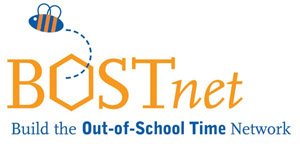As part of a larger study on leadership development in out-of-school time, BOSTnet partnered with the Trefler foundation to convene two small and informal focus groups of youth program leaders to get a better understanding of how these particular leaders viewed the opportunities and challenges to developing effective leaders, both in terms of personal skills and system supports. The sessions were facilitated by Roosevelt Smith, former executive director of Urban Dreams in Dorchester. A few of the more interesting findings are below:
Leadership vs. Management
Both focus groups acknowledge a distinction between management and leadership, but the line between the two was not always clear. Often when we talk about leadership we are really talking about management, the set of skills necessary to run an organization. For most people in our groups, management skills were primarily external and related to knowledge of finances, organizational development, strategic planning, relationship building, fundraising and marketing. Leadership, however, was more directly related to less tangible personal characteristics, such as values, vision, integrity, humility, ego, and the ability to reflect and inspire others. Effectiveness seems to come in a combination of management skills and leadership style that fits a particular context or environment. As one group member observed, “the lack of management skills can be overwhelming. People find themselves in jobs they can’t handle because they don’t have the skills, even though they may have some of the leadership aspects.” Yet, as another participant noted, “Not building relationships, not building trust, these are (gaps in) leadership, rather than management skills.” Despite these tensions, there seemed to be a sense that nonprofits have the promise of more collaborative models of leadership. Success is not linked to building and holding all the skills yourself, but in pulling people in who have the skills necessary to keep an organization focused on its mission and values. This approach requires robust internal systems of communication and staff development, as well as resources to recruit the right people.
Barriers to Effective Leadership Development
All of the participants in the focus groups recognized the barriers of low pay, high stress, limited support and unrealistic expectations. Uncertainty and operational tension leads to burnout and transitions up and down organizations. Various participants spoke candidly about the effects of limited resources on their work. “How do we lead when we don’t have enough money to build systems or hire the right people? Leadership gets co-opted by fear.” One offshoot of this is the increasing tendency to work in isolation, feeling as if your organization is under attack by competitors, fickle funders, or down budget cycles that will take away your resources. In a climate of fragmentation and resource scarcity, it is increasingly difficult to move systems forward and remain innovative. Organization leaders often cannot do the foundational work necessary to develop a proper understanding of community needs. As one participant observed, “Skill comes in saying I don’t know enough to launch this project, this vision. I need to know more about the community, my staff, my board . . . Writing a grant takes a lot of time, meeting with funders takes time and you don’t want people to come and see you when you’re not ready. It can squash your funding for years.” The groups also felt an inherent tension in advancing in their careers and taking on more management tasks while getting farther away from what connected them to the field in the first place—working with youth.
Generational Differences
There are clearly generational differences in how individuals approach leadership. For many “emerging leaders” there is a sense that more established leaders are change resistant. “The old guard obstructs, even when they realize that something is broken.” As a group, there was some consensus that younger people entering the field have been born into a value system that is more collaborative and participatory. There is a desire to share a place at the table and expand the dialogue, but for leaders with 10 or 20 years of experience it is hard to let go of hard won competencies and influence. One participant observed that we “can make competency assumptions based on titles, but this may not match up with the actual abilities of the person. Positions haven’t been well defined or people haven’t been well trained in their roles. The older generation developed into roles without clear definition, the newer generation needs to have a system in place to show them where they are going.” As another member of the group observed, “The ED job has changed and the older generation hasn’t kept up. They band-aid opportunities together and do not make the work appealing. Who would want to be an ED? Staff needs to see that the ED is getting the support needed.” Without the necessary support systems in place, fewer emerging leaders may see value in moving into defined leadership roles.
The full report on the Leadership Study will be available on the BOSTnet website on March 31st.
Gov. Patrick Establishes Six Readiness Centers
16 years ago

No comments:
Post a Comment